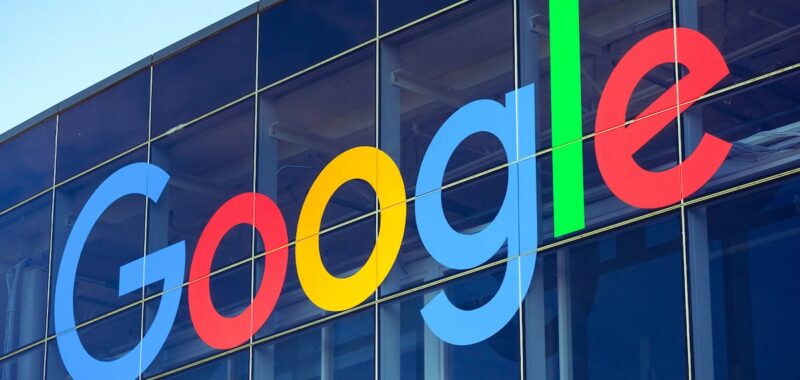
Google illegally monopolised some online advertising technology markets, according to a federal judge, whose ruling marked the latest antitrust setback for the company and a challenge to its main source of revenue.
US district judge Leonie Brinkema found on Thursday that the Alphabet Inc. unit violated antitrust law in the markets for advertising exchanges and tools used by websites to sell ad space, known as ad servers. But she said the company didnât meet the definition of a monopoly for a third market of tools used by advertisers to buy display ads.
Alphabet shares quickly sank as much as 3.2 percent on the ruling, then slightly pared their losses. The stock was down 1.1 percent at $153.78 at 1:10 p.m. in New York.
Brinkemaâs decision marked the second time in a year that Google was found by a court to be an illegal monopolist. A trial begins Monday in Washington on a remedy after the company was found to monopolise the online search market. The Justice Department is seeking to force Alphabet to sell off its Chrome browser.
In the ad technology case, Brinkema wrote in her 115-page opinion Thursday that âGoogle has wilfully engaged in a series of anticompetitive acts to acquire and maintain monopoly power in the publisher ad server and ad exchange markets for open-web display advertising.â For over a decade, Google pushed web publishers to use its tools that both placed ads on websites and help manage their advertising business, the judge found.
The judge found that Google âfurther entrenched its monopoly powerâ through anticompetitive policies on its customers and by eliminating desirable product features. âIn addition to depriving rivals of the ability to compete, this exclusionary conduct substantially harmed Googleâs publisher customers, the competitive process, and, ultimately, consumers of information on the open web,â she wrote.
Brinkema said she will set separate court proceedings to determine a possible remedy.
The Justice Department and a group of states sued Google in 2023, arguing the company illegally monopolised three separate markets related to the technology used for online display advertising: ad servers, exchanges and networks.
In their initial lawsuit, the Justice Department and states sought to have Googleâs ad tech business broken up, but Brinkemaâs ruling set a high bar for that. She found that the companyâs acquisitions in that sector â of DoubleClick and Admeld â were not themselves anticompetitive.
The Justice Department âstill faces serious challenges in getting a divestiture, but it is possible,â said Justin Teresi, a Bloomberg Intelligence analyst. âI would expect Google to argue that an entire portion of its business shouldnât be divested when there was only litigation on an aspect of it.â
Google said it would appeal the part of the case that it lost. âWe disagree with the Courtâs decision regarding our publisher tools,â said Lee-Anne Mulholland, Googleâs vice president of regulatory affairs. âPublishers have many options and they choose Google because our ad tech tools are simple, affordable and effective.â
A Justice Department spokesperson didnât immediately respond to requests for comment.
Jonathan Kanter, the Justice Department antitrust chief under former President Joe Biden, said on LinkedIn that the ruling âis a huge victory for antitrust enforcement, the media industry, and the free and open internet.â
âGoogle is now an illegal monopolist twice over,â Kanter wrote.
Much of the Justice Departmentâs case focused on attacking Googleâs past acquisitions, including DoubleClick, which worked with websites to sell ads. Brinkema agreed.
âGoogleâs bolstering of its publisher-facing business through the DoubleClick acquisition helped it establish a dominant position on both sides of the ad tech stack,â she wrote.
Googleâs ad tech business benefited from ânetwork effects,â as the more advertiser customers the company had, the more publishers wanted to use its tools, Brinkema added. In addition, the more publishers Google had as customers, the more advertisers wanted to use Googleâs services, âthereby creating a self-reinforcing positive feedback loop.â
The Justice Department also sought sanctions against Google for alleged intentional destruction of evidence.
âGoogleâs systemic disregard of the evidentiary rules regarding spoliation of evidence and its misuse of the attorney-client privilege may well be sanctionable,â Brinkema ruled. But because she ruled for the government on the available evidence, sanctions are not necessary, she said.
In ruling for the Google on the advertiser-side market, Brinkema found that advertisers can choose different options based on âperceived return on advertising expenditures.â
The judge pointed to the owner of a beauty tech startup who testified that she switched from Googleâs AdWords to Instagram based on her experience with each platform. She wrote âthe advertiser is the consumer and is focused on reaching users regardless of which channel they are using.â
And while Brinkema found that Googleâs deals boosted the companyâs monopoly power, âthe government failed to show that the DoubleClick and Admeld acquisitions were anticompetitive.â
By Leah Nylen and Josh Sisco
Learn more:
The Big Money in AI Might Be for Marketing
A number of new AI features from big tech players like Google and TikTok are aimed squarely at marketers willing to spend on tools that make it easier to create ads that grab shoppersâ attention.

